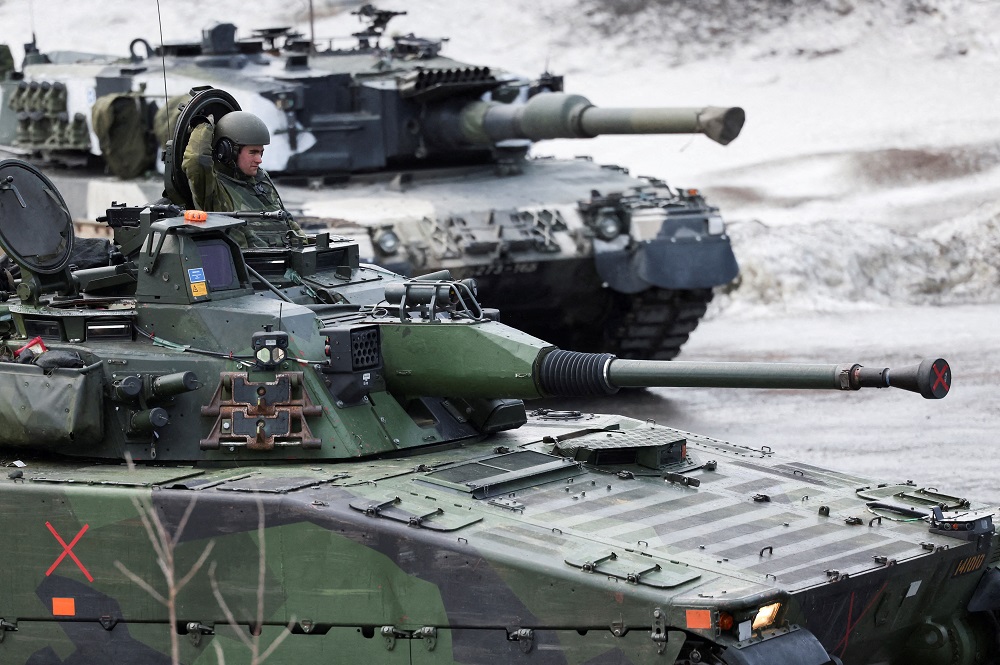By Sherwin Bryce-Pease
Copyright sabcnews

Growing global military spending represents a massive diversion of resources and threatens humanity’s future by undermining investments in sustainable peace and development. That’s the sobering message of a new report by the United Nations Secretary-General, which found that global military spending reached a record high of $2.7 trillion in 2024, surging by over 9% from 2023.
The report titled “The Security We Need: Rebalancing Military Spending for a Sustainable and Peaceful Future” sounds the alarm of a dangerous move away from the principles of the United Nations Charter.
The report reveals a stark reality as military spending soars to record levels.
The world is currently way off track to meet its development obligations, as implementation of the Sustainable Development Goals (SDGs) ahead of the 2030 deadline remains a growing area of concern.
UN Secretary General Antonio Guterres says, “In 2024, global military spending surged to a record $2.7 trillion, the equivalent of $334 for every person on Earth. That is nearly thirteen times the amount of official development assistance from the world’s wealthiest nations and 750 times the regular budget of the United Nations. At the same time, our shared promise of sustainable development is in jeopardy. Only one in five Sustainable Development Goal targets is on track.”
The report confirms the current SDG Financing gap is now above 4 trillion dollars annually and frames the redirection of resources towards military spending as crowding out financing essential for social investment, poverty reduction, education, healthcare, environmental protection and infrastructure. It therefore undermines progress on nearly all the SDGs.
The report warns that this disproportionately affects low-income and fragile states already grappling with underdevelopment, which could lead to greater insecurity; a vicious circle in which the problem is merely exacerbated.
The UN highlights three urgent messages: the current trajectory was unsustainable and investing in people was investing in the first line of defence against violence in any society, a better path was within reach and redirecting even a fraction of today’s military spending could close vital development gaps, and a rebalancing was necessary to put diplomacy first while boosting financing for development.
“The evidence is clear: excessive military spending does not guarantee peace. It often undermines it, fuelling arms races, deepening mistrust and diverting resources from the very foundations of stability. A more secure world begins by investing at least as much in fighting poverty as we do in fighting wars.”
The report finds that if $1 billion could generate 11 000 military jobs, the same amount could create over 17 000 jobs in healthcare or almost 27 000 jobs in education.
UN High Representative for Disarmament Affairs Izumi Nakamautsi says, “Ultimately, arms control is about people. We need a new vision of security, human-centered and rooted in the UN charter, a vision that safeguards people, not just borders and prioritises institutions, equity and planetary sustainability. Let this report spark a new conversation, one that challenges the status quo and inspires bold, transformative change.”
With officials here making the case for why multilateral development cooperation produces results that military expenditure simply cannot.
Acting UNDP Administrator Haoliang Xu says, “We’re all aware of the fight against HIV Aids. Since early 2000s the international community decided to act together. Over the last 20-plus years, the Global Fund for HIV/Aids, Tuberculosis and Malaria has raised more than $60 billion with international action that saved the 65 million lives.
“We know the story about the multilateral action to save the ozone layer. Again, multilateral action, but billions of dollars of expenditure. But we removed 99% of the ozone-depleting substances from production. The response to COVID-19 was a collective effort. The UN led the international response right from analytical strategy to vaccine development and distribution. So multilateral action works.”
With a view that these types of investments better guarantee peace and stability in an era where conflicts continue to dominate the narrative, from Gaza to Sudan to Ukraine, among others, and as military expenditure goes up, the face of human suffering proliferates.



